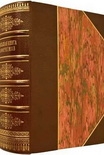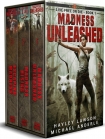The Accidental Archmage - Book Five by Edmund Batara (best sci fi novels of all time txt) 📗

- Author: Edmund Batara
Book online «The Accidental Archmage - Book Five by Edmund Batara (best sci fi novels of all time txt) 📗». Author Edmund Batara
(Please refer to https://www.historyextra.com/period/viking/the-truth-about-viking-berserkers/)
Curavali – A Tamil word for cyclone or hurricane.
CHAPTER FOURTEEN
Alföðr – A Norse word meaning Allfather.
House of Gimli – A Norse myth, not the dwarf. It is little known compared to the more popular Valhalla, where half of those who died in battle reside (the other half goes to the goddess Freyja). Valkyries select those who join the einherjar ranks. The House of Gimli, considered the most beautiful part of Asgard, is believed to be where the souls of righteous men reside. In another version, it is thought to be where the survivors of Ragnarok will live.
CHAPTER SIXTEEN
Swina bqllr – Old Norse swear phrase, meaning pig’s balls.
Nodachi – A form of Japanese longsword, similar in function to a claymore. The length of the weapon meant its use relied on its length and power for downward cuts. Unfortunately, it also demanded a larger area around the warrior using the weapon.
Ymirs frosteistna! – “By Ymir’s frosty balls.” Old Norse expression.
Kenjutsu – A Japanese word usually applied as a general term to describe all the schools or arts of swordsmanship in ancient Japan.
On glima and tricks – Glima is the ancient Norse of wrestling.
Please refer to https://www.vikingmartialarts.com/history-of-glima/
Góðan daginn – One of the traditional Norse greetings meaning ‘good day’. The phrase used by Jorund in Book One was more practiced by the ancient Norse.
Trelleborg – Norse fortresses are known by this term. They are usually described as fortifications in the shape of a ring. However, in Adar, the mixture of cultures and the introduction of trading among dissimilar civilizations also introduced new concepts in defensive structures, for example, the Scarburg fortress.
Batur – Old Norse. Meaning “a boat.” Also used to refer to a fighting unit of thirty-six to forty men. (TAA, I)
CHAPTER SEVENTEEN
Heruli – A term used by the Romans to describe a tribe found in Denmark today. Their warriors had been described as elite fighters. To quote –
“The heruli are said to have had a kingdom on Fyn. This may have survived until into the sixth century, but more of them had previously been driven out of Scandinavia by the Danes. The heruli often took service as warrior bands in the Roman army. They appeared in the same way as the berserkers, in small groups in the service of chieftains or kings, and there is a possibility that the origins of the berserkers may be found among the mysterious heruli.”
(Please refer tohttps://www.historyextra.com/period/viking/the-truth-about-viking-berserkers/ )
Drotten – Old Norse phrase meaning vigorous and warlike. Usually used to refer to young jarls or leaders.
Frea – Old Norse phrase meaning wise and respected. Usually used to refer to old rulers and leaders.
Hird – Old Norse. The term used to refer to the bodyguards of a ruler as a separate body of fighting men.
Huskalar – The plural form of the Norse word huskarl (adopted as housecarl in the English language). The term refers to the armed retainers of a jarl.
CHAPTER EIGHTEEN
Kush – An ancient land in Africa settled by what we now call the Nubians. Conquered by the Egyptians, they eventually freed themselves. Split into two kingdoms later in their history, one allied itself with the Hyksos when the latter invaded Egypt.
Djenne-Djenno – A prehistoric realm arising in Africa, where Mali is now located. One of the first to smelt iron, engage in trade routes, and the domestication of animals and plants. The name literally means ‘ancient Djenne.’
CHAPTER NINETEEN
Dvergar – Old Norse word for dwarves (dvergr is the singular form). Norse mythology mentions dwarfs, or dwarves, as others might prefer it to be spelled, but lore indicates two kinds – the Svartálfar who reside in one of the Nordic nine worlds (Svartálfaheimr) and the Dvergar. Both long-lived kinds are exceptionally skilled metal craftsmen, said to exemplify wisdom, preferring residing underground, but unfortunately characterized by the greed for wealth, particularly gold.
The epic considers them a related race – one preferred the old ways and the other believed in adapting to new realities – though most individuals of both kinds are cranky and difficult, worse than the orneriest mage.
CHAPTER TWENTY
Drottin – Old Norse meaning warband leader. Drott refers to the warband itself.
Mia – An old Norse game involving dice usually made of bone.
CHAPTER TWENTY-TWO
Pentekostyes – Greek/Spartan term. Refers to a military unit of 160 men. (TAA, Book I)
CHAPTER TWENTY-SIX
Siege weapons – The Sai Men Dao Che and the Chikyu Ni Fureru are historical ancient Chinese siege weapons. The term Ajisai No Hoyo is fictional. The Wolf’s Teeth siege defense apparatus was first experienced by the Japanese during their invasion of Korea under Shogun Toyotomi Hideyoshi.
Goryeo – one of the ancient names for the Korean peninsula.
Kraken – Despite Hollywood’s efforts to the contrary, the Kraken was never a Greek mythological creature. It is a Norse myth.
CHAPTER TWENTY -SEVEN
Eldhúsfífl – Old Norse. A good-for-nothing.
Fífl – Old Norse. An idiot.
Hraumi – Old Norse. A braggart.
Vámr – Old Norse. A disgusting person. Tyndur was being kind.
Vígríðr – Old Norse. The field where the final battle of Ragnarok would be fought.
Uff da – Norwegian/Nordic. An expression expressing surprise, dismay, or bafflement, depending on the situation.
Járngreipr – Old Norse. According to the Gylfaginning, Thor wears gauntlets enabling him to handle Mjolnir.
(Please refer to https://en.wikipedia.org/wiki/J%C3%A1rngreipr)
Fenrisúlfr– Old Norse. One of the names of Fenrir, meaning Fenris-wolf.
Ullr – A Norse deity associated with archery, single combat, and glory.
CHAPTER TWENTY-EIGHT
Minhocao – A Southern American myth, described as either an enormous snake or worm with bony scales capable of dragging horses, men and other large prey into a river or its feeding ground.
CHAPTER TWENTY-NINE
Lagmann – Old Norse term meaning a lawspeaker. An important office in Nordic societies. At Gamla Uppsala, 1018, Torgny the Lawspeaker forced King Olof Skötkonung not only to accept peace with his enemy, King Olaf the Stout of Norway, but also to give his daughter to him in marriage.
(Please refer tohttps://en.wikipedia.org/wiki/Lawspeaker )
EPILOGUE
Dory – Ancient Greek. A spear. The singular form of dorata. The term “dorata” was also used by Homer in one of his epics. A “dory” is the typical phalanx spear,





Comments (0)